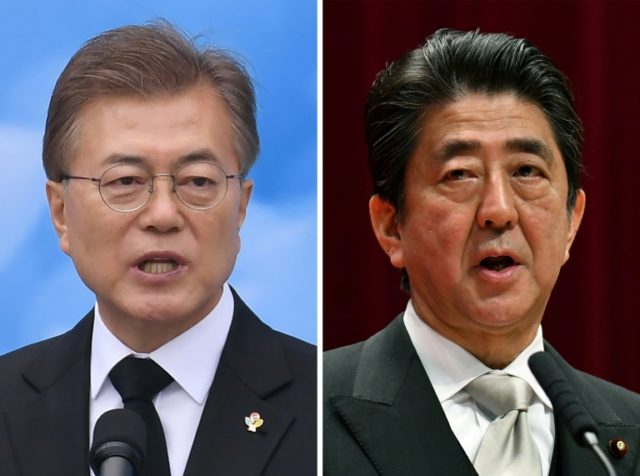President Donald Trump’s announcement Tuesday that joint U.S. military exercises with South Korea will be suspended as part of ongoing negotiations with North Korea was met with consternation in Seoul and Tokyo, along with some confusion in Washington.
“We will be stopping the war games, which will save us a tremendous amount of money, unless and until we see the future negotiation is not going along like it should. But we’ll be saving a tremendous amount of money, plus I think it’s very provocative,” Trump said at a press conference in Singapore on Tuesday after his meeting with North Korean dictator Kim Jong-un.
Yonhap News on Wednesday quoted South Korean military analysts who fear complete suspension of the exercises would compromise their nation’s security, although they thought scaling the exercises back would be more acceptable:
“Military drills have been key to the alliance. Through the drills, the allies have maintained preparedness against a possible invasion by the North or its possible missile attacks,” said Nam Chang-hee, international politics professor at Inha University.
“I think there should be a clear understanding of how the South Korea-U.S. military defense system works. If the drills are suspended, many problems could occur in terms of the military operations just like the machines getting rusty when they are left unused,” he added.
The professor, in addition, said that suspending the drills would be “unrealistic,” while readjusting their frequency or downsizing them could be taken into consideration in line with the North’s denuclearization process.
Retired Major Gen. Lee Seo-young, former defense attache of the South Korean Embassy in Washington D.C., said that the suspension, should it occur, could attenuate the alliance’s overall deterrence capabilities.
“Basically, the most crucial mission of an alliance is to deter war or fight together should there be an invasion. How can we maintain combat readiness without training exercises?” said Lee.
“Should there be no exercises between the allies, the combined defense posture will weaken. With regard to this, there should be the active will from the government and the military (to keep the drills), as well as support from the citizens,” he added.
Yonhap contended that Trump’s offer was a significant rhetorical concession to North Korea, which has long denounced the wargames as provocative or even disguised attempts to launch an invasion, while the U.S. and South Korea consistently rejected those characterizations.
On the other hand, some South Korean analysts conceded that North Korea seeks security guarantees before proceeding with denuclearization, so according to its own rhetoric, suspending military exercises should be a quick and low-cost means of reassuring it.
Yonhap quoted consternation from Japan as well:
“The U.S.-South Korean exercises and U.S. forces in South Korea play significant roles for the security of East Asia,” Japanese Defense Minister Itsunori Onodera was quoted by Kyodo News as saying.
“Resolving nuclear, missile and abduction issues are our final aim,” he said, adding, “We would like to ask North Korea to make policy changes in a visible way.”
South Korea’s government appeared to be coming around to the idea of suspending military drills, according to a spokesman for President Moon Jae-in’s office quoted in another Yonhap post on Wednesday afternoon.
“We believe there is a need to consider various ways to further promote dialogue as long as serious discussions are being held between the United States and North Korea for the denuclearization of the Korean Peninsula and establishment of peace,” said spokesman Kim Eui-kyeom.
“For now, there still is a need to find out the exact meaning and intention of President Trump’s remarks,” Kim added diplomatically.
Many in Washington felt the same need, wondering why Trump would announce the suspension of wargames without consulting with Japan and South Korea first.
Michael J. Green of the Center for Strategic and International Studies speculated to CNN on Tuesday that the Pentagon might develop a more detailed and nuanced strategy, explaining that “what the President meant was we’re not going to have heavy bombers in our exercises, or we’re not going to escalate them because we’re under a diplomatic process right now.”
An unnamed defense official told CNN the military has “received no updated guidance on execution or cessation of training exercises,” including the Ulchi Freedom Guardian exercise scheduled for August. However, the Pentagon officially stated that Secretary of Defense James Mattis was consulted before Trump made his announcement.
Political Washington added to the confusion with contradictory statements about whether Vice President Mike Pence contradicted President Trump and said exercises would continue, eventually resolving into an assurance from Pence that “readiness training and exchanges” would continue but not large-scale wargames. Congressional Republicans seemed generally ambivalent about the wisdom of suspending exercises but firmly opposed to removing troops from South Korea.

COMMENTS
Please let us know if you're having issues with commenting.